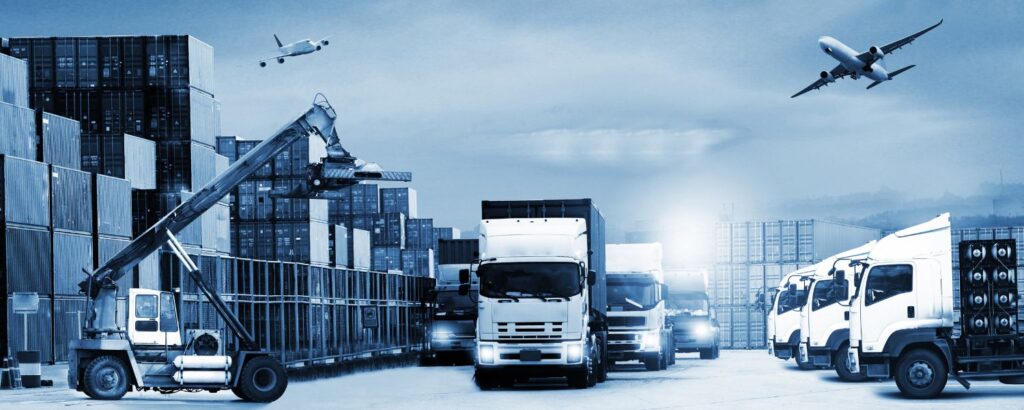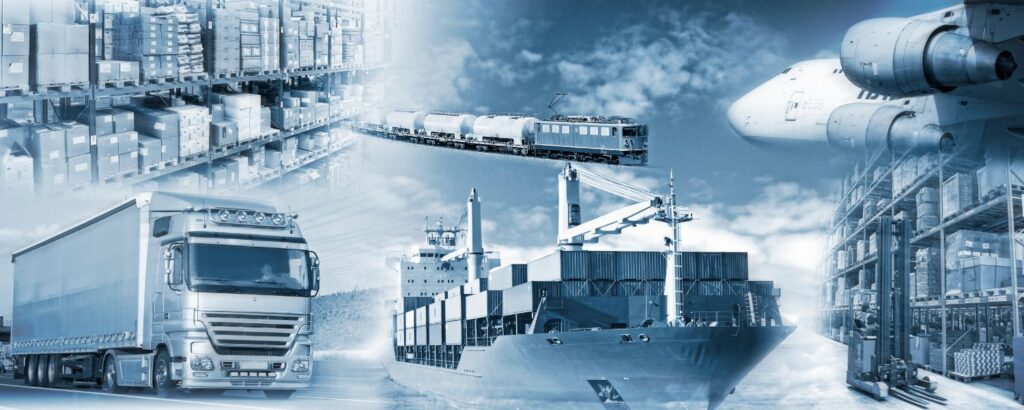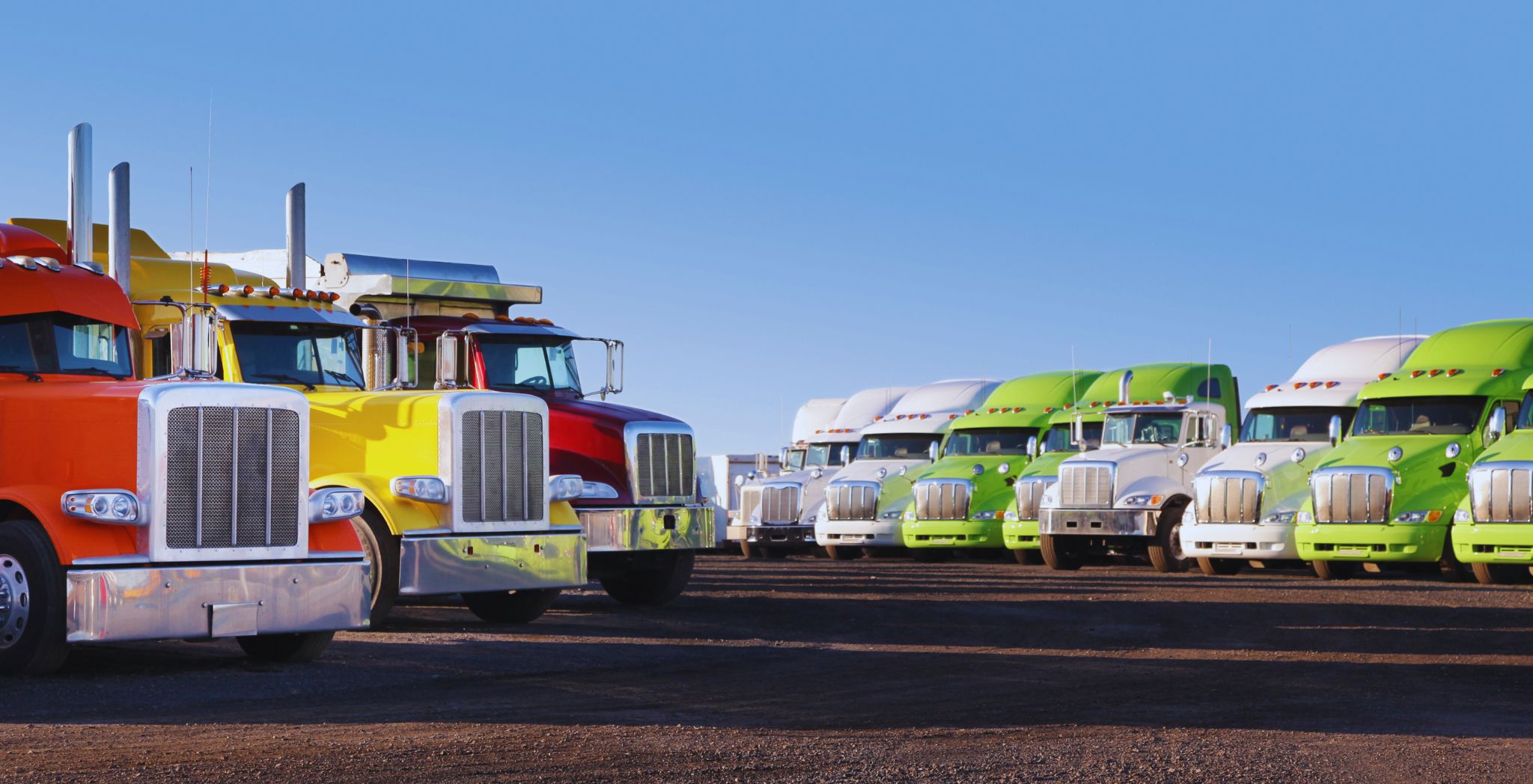In the rapidly evolving transportation and logistics landscape, integrating sustainability into fleet management systems has emerged as a pivotal strategy for businesses aiming to achieve sustainable performance and operational excellence. This blog delves into the essence of fleet management, its significance, and how adopting a fleet management system can enhance environmental sustainability, operational efficiency, and future-ready enterprises.
The quest for environmental sustainability reshapes industries worldwide, compelling businesses to rethink their operational strategies. Adopting a fleet management system in logistics and transportation has become a cornerstone for companies striving to align their operations with sustainable practices.
What is Fleet Management?

The push for a greener planet is changing how companies operate globally. Businesses are now looking at their daily activities in a new light, especially in logistics and transportation. Using a fleet management system is becoming essential. It’s a critical tool for companies that want to make their work more eco-friendly.
Think of it this way: Like we try to use less water or recycle more at home to help the environment, businesses are doing something similar with their vehicles and transport methods. They’re using technology to track and manage their fleets more efficiently. This helps them save money and reduces their impact on the planet. So, adopting a fleet management system is a big step for companies wanting to do their part for the environment.
Why is Fleet Management Important?

Fleet management is crucial in today’s environmentally conscious world for several reasons, each contributing to smoother operations, cost savings, and, most importantly, a reduced environmental footprint. Here’s a breakdown of why it’s so important:
1. Optimizing Routes
- Just like choosing the shortest path to your destination saves time and energy, fleet management identifies the most efficient vehicle routes.
- This reduces unnecessary travel, saving fuel and cutting down on emissions. It’s a straightforward yet effective way to be kinder to the environment.
2. Enhancing Fuel Efficiency
- Fleet management focuses on ensuring vehicles consume the least fuel for their tasks, akin to tuning your car to prevent it from using more gas than needed.
- This reduces fuel costs and minimizes the vehicles’ environmental impact by lowering their emissions.
3. Ensuring Timely Maintenance
- Regular maintenance keeps vehicles running smoothly, like traditional health check-ups, helping maintain your well-being and preventing more severe issues.
- Well-maintained vehicles are more fuel-efficient and emit fewer pollutants, producing cleaner air.
4. Reducing Emissions
- Fleet management significantly reduces harmful vehicle emissions by combining optimized routes, improved fuel efficiency, and regular maintenance.
- This is crucial for businesses aiming to reduce their carbon footprint and demonstrate environmental responsibility.
5. Promoting Sustainability
- Beyond operational benefits, fleet management aligns with broader environmental goals, helping businesses contribute to sustainability efforts.
- It showcases a commitment to preserving our planet for future generations by actively reducing the environmental impact of business operations.
In essence, fleet management is not just a strategy for operational efficiency; it’s a commitment to environmental stewardship. It enables businesses to fulfill their responsibilities towards the planet while achieving their operational goals, making it an indispensable practice in today’s eco-conscious business landscape.
Benefits of a Fleet Management System

In today’s landscape, optimizing fleet operations isn’t just about efficiency—it’s about sustainability, too. By embracing a fleet management system, your business can elevate its operations to meet modern environmental standards head-on. Let’s unpack the tangible benefits and see how they translate into real-world impact:
1. Enhanced Fuel Efficiency
Imagine knowing how much fuel each vehicle in your fleet uses at any given time and under different conditions. A fleet management system does just that. It’s like having a fuel watchdog that constantly monitors consumption, identifies wasteful practices (like excessive idling or inefficient routes), and suggests better alternatives.
This helps cut down fuel bills—often one of the most significant expenses in fleet operations—and reduces your fleet’s carbon footprint. It’s a win-win: you save money and contribute to a healthier planet by emitting less CO2.
2. Improved Operational Efficiency
Efficiency is the name of the game in fleet management. A fleet management system gives you a real-time bird’s-eye view of your entire fleet. This means you can see where each vehicle is, how it’s being used, and even predict when it’ll reach its destination. This information is gold when it comes to making quick, informed decisions.
Need to reroute a vehicle due to unexpected traffic or weather conditions? No problem. The system helps you do that quickly, ensuring timely deliveries and happy customers. It’s like having a central command center that keeps everything running smoothly and efficiently.
3. Reduced Maintenance Costs
Vehicles are like athletes; they need regular check-ups and maintenance to perform at their best. A fleet management system acts as a diligent coach that keeps an eye on the health of each vehicle. It alerts you when a car needs servicing, even predicting potential issues before they become serious problems.
This proactive maintenance approach saves you from the headache of unexpected breakdowns and extends the life of your vehicles. It’s all about keeping your fleet in top condition so it’s always ready to go the distance without unnecessary costs or downtime.
4. Compliance and Safety
Staying on the right side of regulations and ensuring the safety of your drivers are non-negotiable aspects of fleet management. A fleet management system helps you keep track of essential compliance requirements, such as emissions standards and hours of service for drivers. It also plays a crucial role in enhancing safety by monitoring driver behavior, encouraging safe driving practices, and providing training modules.
In essence, adopting a fleet management system is not just about leveraging technology for the sake of it. It’s about making informed, strategic decisions that boost operational efficiency, reduce costs and promote a safer, more sustainable performance system for fleet management. It’s about ensuring your fleet is a collection of vehicles and a well-oiled machine that drives your business forward responsibly and efficiently.
How does a Fleet Management System Work?

A fleet management system at its core integrates IoT technology, software applications, and data analytics to provide a comprehensive view of fleet operations. The system offers tools to optimize fleet performance and sustainability, from real-time vehicle tracking to predictive maintenance and fuel management.
By leveraging data-driven insights, businesses can make strategic decisions that reduce carbon footprints and enhance operational efficiency.
Future Trends in Fleet Management Systems

The future of fleet management systems is marked by integrating cutting-edge technologies such as AI, machine learning, and blockchain. These advancements promise to bring about even greater efficiencies, more sustainable practices, and enhanced decision-making capabilities.
As the focus on environmental sustainability intensifies, adopting green technologies and electric vehicles within fleet management systems is set to become a defining trend, paving the way for a greener, more sustainable future in logistics and transportation.
The ongoing evolution of fleet management systems is about harnessing new technologies and embedding sustainable practices at the core of logistics operations. As we delve deeper into the digital transformation era, the focus intensifies on creating efficient, cost-effective, and environmentally responsible systems.
Tailored Solutions for Small Businesses

Adopting fleet management software tailored to their unique requirements is crucial for small businesses. These businesses must navigate the challenges of limited resources and the need for cost-effective solutions.
Fortunately, the market offers a variety of fleet management software for small businesses, designed with user-friendly interfaces and essential features that enable these companies to improve their operational efficiency and environmental footprint without overwhelming their budgets.
Innovations in Fleet Management

The future trends in fleet management systems also highlight the growing emphasis on customization and flexibility. From the best fleet management system that offers a comprehensive suite of features to specialized types focusing on specific aspects such as maintenance or fuel management, the diversity in solutions ensures that businesses can find a system that best aligns with their sustainability goals and operational needs.
The Power of Data Analytics

The power of data analytics lies at the heart of an effective fleet management system. By harnessing the vast amounts of data generated by fleet operations, businesses can gain insights into driver behavior, vehicle performance, and fuel consumption patterns. This information is invaluable in making data-driven decisions that enhance operational efficiency and contribute to significant environmental benefits by reducing emissions and optimizing resource use.
Conclusion
In conclusion, integrating sustainability into fleet management systems is imperative for businesses navigating the dynamic transportation and logistics landscape. This strategic move goes beyond efficiency, transcending into a commitment to environmental responsibility and operational excellence.
Fleet management, driven by technologies like IoT, is a pivotal tool in pursuing a greener planet. It optimizes routes, enhances fuel efficiency, ensures timely maintenance, and reduces harmful emissions. More than just a strategy for operational efficiency, it signifies a commitment to environmental stewardship, aligning businesses with broader sustainability goals.
As we look to the future of fleet management systems, incorporating cutting-edge technologies like AI and blockchain promises even greater efficiencies and sustainability. VectorGlobe, as a leader in climate technology, is poised to play a transformative role in this journey.
By integrating the power of data analytics and providing tailored solutions, VectorGlobe is redefining the landscape, offering businesses not just a fleet management system but a sustainable pathway forward. The future lies in the convergence of technology, sustainability, and operational excellence, and VectorGlobe is at the forefront of driving this transformative change in the logistics and transportation industry.

